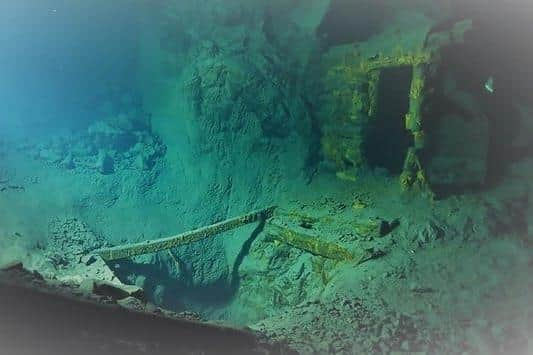Next steps for Hebburn energy project after minewater scheme runs into problems
and live on Freeview channel 276
The Hebburn Minewater Scheme, a flagship South Tyneside Council project primed to draw geothermal energy from old flooded mine workings, is not expected to progress in its current form.
As previously reported, project bosses said “stability issues” with one of the boreholes meant water could not be extracted and returned to the mine workings as intended.
Advertisement
Hide AdAdvertisement
Hide AdHowever, South Tyneside Council confirmed the carbon-cutting scheme would still go ahead by using air source heat pumps instead of minewater pumps, a mitigating measure designed into the system.


In a statement issued on October 10, 2022, the council added the revised scheme would likely result in the same estimated annual carbon savings of approximately 319 tonnes.
At a meeting of the Hebburn Community Area Forum (CAF) on October 17, several councillors defended the scheme after a comment from a member of the public suggested it had “failed”.
Councillor Liz McHugh, Hebburn North representative, told the meeting: “The minewater, it didn’t work out the way that was planned, however they are going to use the air.
Advertisement
Hide AdAdvertisement
Hide Ad“So the only difference is 15% of efficiency that has been lost, so it hasn’t failed, it’s still going to work”.
Councillor Wilf Flynn, chair of the Hebburn CAF, added: “Whatever hitch has come about won’t mean [the project] won’t happen elsewhere once they find out what went wrong.
“We will still end up with a system, maybe not as efficient as it was but certainly don’t use the term it’s failed”.
The Hebburn Minewater Scheme, which secured funding from the European Regional Development Fund (ERDF) had been developed in collaboration with the Coal Authority and Durham University.
Advertisement
Hide AdAdvertisement
Hide AdThe technology involved drawing sustainable energy from flooded mine workings to heat council buildings in the town via an underground pipe network, with an ambition to expand this in future.
A South Tyneside Council spokesperson confirmed the proposed use of air source heat pumps would be “slightly less efficient” than minewater due to the variation in air temperature at different times of year.
However the council have said the scheme will likely result in the same estimated carbon savings.
The local authority still hopes to utilise minewater as a source of energy in the scheme, and is exploring the option of using an “abstraction borehole”, creating a “single closed loop” to complement air source heat pumps.
Advertisement
Hide AdAdvertisement
Hide AdA council spokesperson added officers are evaluating whether there will be any reductions in carbon savings and whether this will have implications on ERDF funding already secured.
As there is a Levelling Up Fund bid linked to the Hebburn Minewater Network, the design team is also looking at possible implications on the bid and whether adjustments are needed to the proposed design.
Councillor Margaret Meling, cabinet member for economic growth, skills and climate change, said: “We are absolutely committed to generating modern energy solutions using our historical and natural resources and we do hope to still use minewater in this scheme to complement the output from air source heat pumps.
“The revised scheme will provide low carbon heat to residents and council buildings as always planned and is likely to result in around the same estimated annual carbon savings.
“With innovation there is inevitably an element of risk, for which we have mitigated, and we will take the learning from this scheme to continue to develop pioneering renewable energy systems.”